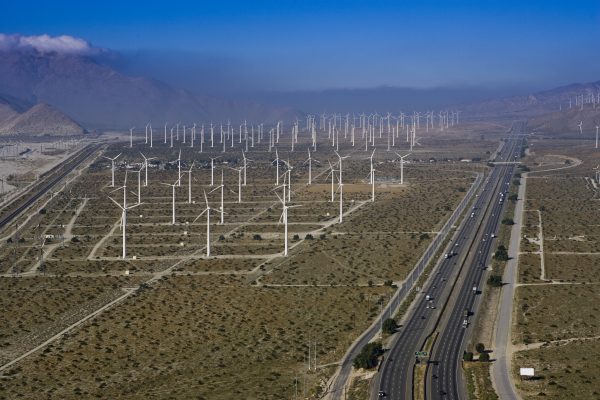Fossil fuel divestment is a student-driven political movement that aims to force universities to sell-off the parts of their endowment portfolios that are most tightly tied to coal, oil, and gas. The loosely coordinated movement, linked to 350.org and other climate activist groups, has spread extraordinarily rapidly over the last year and now reaches hundreds of institutions across the world.
Suppose the movement succeeded and every American university decarbonized its investment portfolio. University endowments hold less than 1 percent of the market capitalization of fossil fuel companies worldwide, so their divestment would only have a tiny impact on the companies’ borrowing cost for new capital, a tinier impact on fuel prices, and a truly miniscule impact on emissions. Not to mention that most of the world’s fossil fuel reserves are held by state-owned companies that don’t trade on stock markets.
University divestment seems a weak lever with which to move the world’s energy multi-trillion dollar energy industry. I am nevertheless a strong supporter of the divestment movement and a sometimes, informal advisor to students involved in the Harvard and MIT divestment efforts.
Why my enthusiasm? First and most simply, I respect the energy and brainpower of the students with whom I work. The divestment movement marks the first time in my quarter century involvement with climate change that I have encountered such a strong and disciplined commitment to activism. I have not seen its like since the disarmament movement of the early eighties.
Second, the students have a commitment to talk in simple—but not simplistic—terms about the ethical issues at the core of the climate debate: what do we owe our grandchildren, when our cheap energy changes their climate? What duties do we have toward the millions of people who still live on the margins of survival and well-being, and whom are the least equipped to deal with climate and ecological changes? How can we motivate the world to act on those duties? Most professional environmentalist advocates accept as a matter of commonplace wisdom that classic environmentalism have little sway over the public, so they have turned away from ethical arguments towards appeals that rely almost exclusively on (seemingly) objective quantitative measures of cost and benefit. Instead, they try to convince policymakers that climate risks are so high and renewable power is so cheap that we should make the switch out of simple short-term self-interest. If only. Rather than a soft sell, what we need is honesty about the huge costs of cutting carbon coupled with moral clarity about the reasons to do so, and the student divestment movement provides both.
Third, and finally, the divestment movement is born from failure. The corporatized environmental groups have been unsuccessful in getting a compromise deal to regulate carbon. The fact that more than half of U.S. residents accept the reality of climate science and vaguely wish that something be done is not enough; what’s missing is a small group who make this their priority at the ballot box. Professional environmental groups are necessary but not sufficient: no amount of inside-the-Beltway negotiating will get a meaningful carbon policy without the electoral threat that only a committed movement can deliver. Note how the minority who oppose gun control as their top political priority has trumped the majority who have a weak and diffuse preference for new controls.
My hope is that the divestment movement can, with other grassroots efforts, grow into a social movement capable of mobilizing a small but active minority to push climate policy at the ballot box.
What, then, of fact that university divestment alone will have a tiny impact? Everyone I have talked to in the divestment movement is aware that divestment—narrowly defined—would accomplish little. But if the students should succeed in forcing major educational institutions to divest, they will have necessarily convinced university boards, some of the country’s political and financial elite, to take the problem seriously. It is implausible that divestment would succeed without spilling over into other financial sectors such as large pension and mutual funds, which might then begin to remove certain fossil fuel assets from their portfolios. Moreover, social movements can shift their target as they build political capital.
The divestment movement’s moral clarity entails a risk if advocates shift from demonizing fossil fuels to demonizing the people who dig them up.
Consider the cultural divides that grew when left-wing anti-Vietnam protesters confronted returning troops who were, on average, less privileged or educated than the protesters who shouted epithets like “baby killer.” The shift from a well-founded attack on the war to an attack on those who waged it was a deep error. It contributed to the overuse of the U.S. military in recent decades by making it harder to critique military decisions without seeming to attack people in uniform.
Harvard or Berkeley students protesting fossil fuels must be careful not to blame Appalachian coal miners or Louisiana rig workers in the same way, lest they create a similar backlash. I live part-time in Calgary Alberta, an oil town that will be devastated by strong controls on carbon emissions. I want to end the business on which my town depends even though I know that the human costs of doing so—unemployment and urban decay—will be big. The students pushing divestment use the oil my neighbors produce. I take it as a given that people in Calgary care as much (or as little) for the environment as do other urban North Americans—many, like me, moved there for access to the outdoors. The movement’s challenge is to speak with moral force about our collective responsibility for carbon emissions while leaving an inclusive middle ground for the people who are tied to the fossil fuel industries by circumstance. Many people living in fossil fuel–dominated economies will always oppose climate action. Many, but not all. Those of us fighting fossil fuels need to avoid alienating potential allies whose support we need for the hard work of cleaning our energy system.








